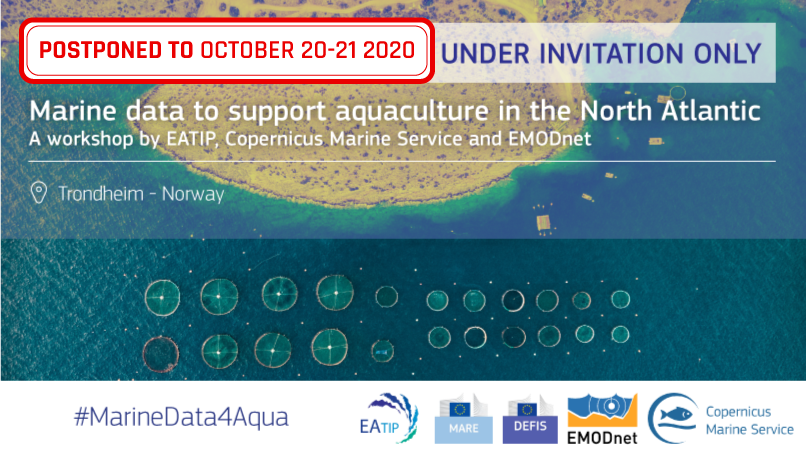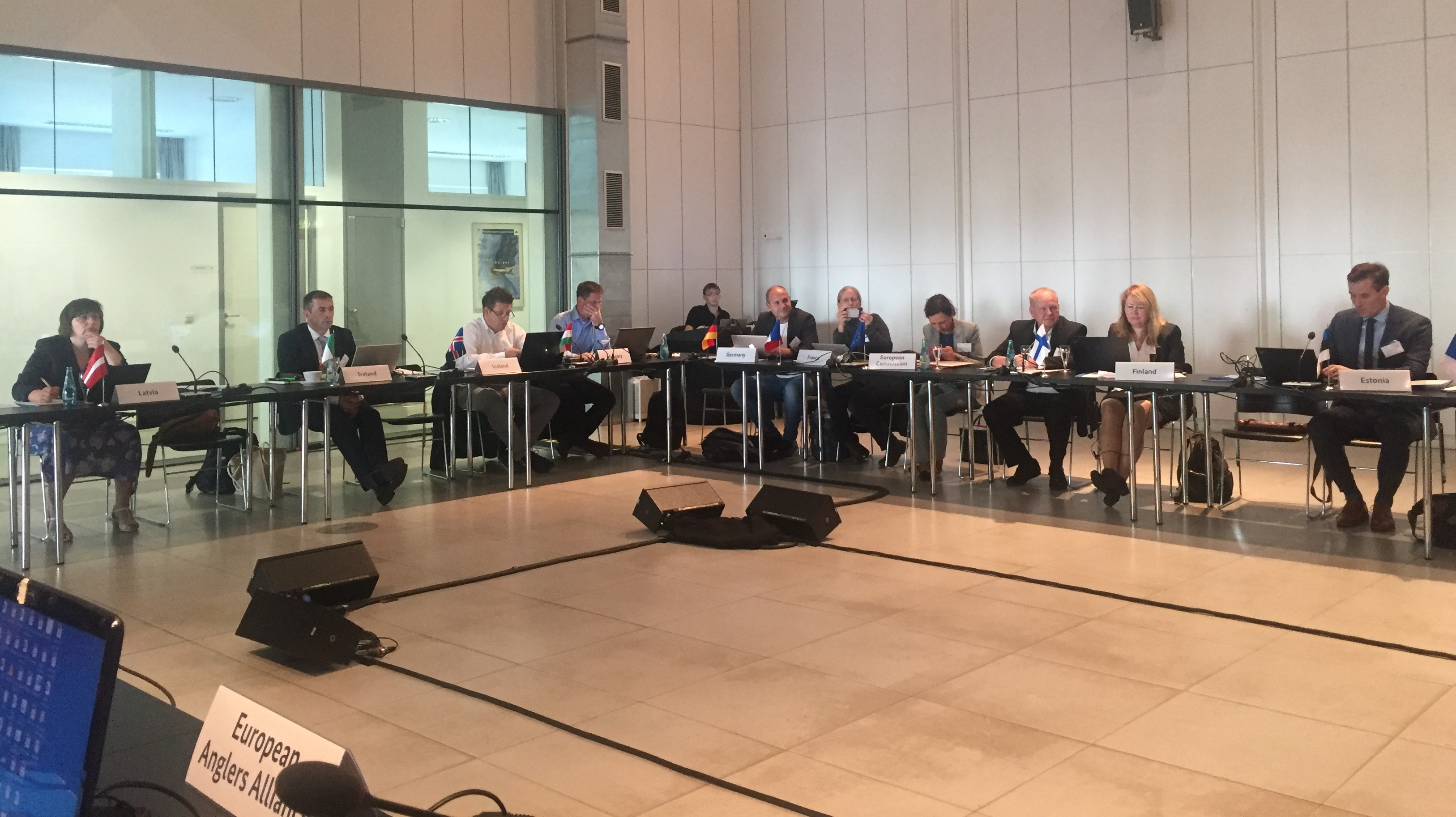EATiP as European Bioeoconomy Stakeholder
/0 Comments/in BIOECONOMY, European Commission, Events, Workshop /by Catherine PonsThe European Commission organized its last European Bioeconomy Stakeholder Panel in Brussels, on March 4. Because the bioeconomy is made up of many different sectors, it is difficult for one single expert or organisation to have a complete overview. The Bioeconomy Stakeholders Panel meets that challenge by bringing together, in one group, people with different stakeholder perspectives. EATiP is the single representative of the aquaculture sector. As its primary goal, the Panel supports EU’s Bioeconomy Strategy. The Panel’s top three commitments for each sector have been related to stakeholder engagement, regional actions and education in the bioeconomy.
EATiP held a presentation on “Partnering aquaculture stakeholder groups and regions to support growth, sustainability and innovation (see attached).
The picture shows the attending Stakeholder Panel Members during the Brussels meeting.
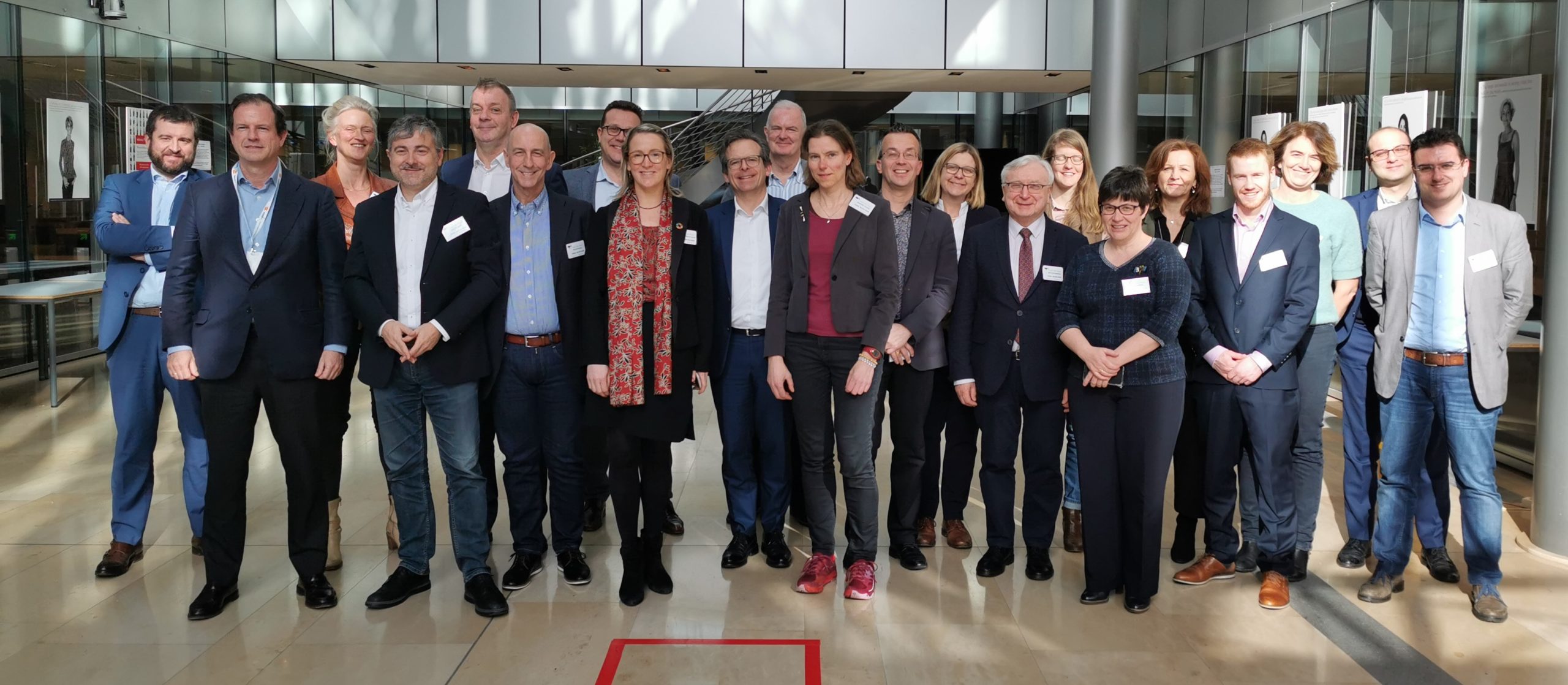
 Loading...
Loading...
Marine data to support aquaculture in the North Atlantic
/0 Comments/in Copernicus, EU, European Commission, Events, MIPs, Workshop /by Catherine Pons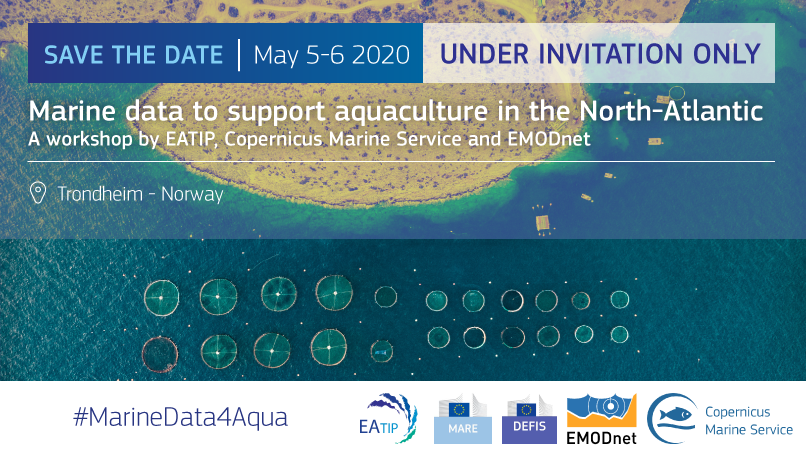
In collaboration with Copernicus Marine, EMODnet and the European Commission, EATiP organizes the expert workshop on “Marine data to support aquaculture in the North Atlantic”, on May 5-6 in Trondheim, Norway. This event, on invitation only, will explore opportunities and applications for open source marine environmental data to support and innovate the aquaculture sector in the North Atlantic region. The ultimate goal is to set up a collaborative platform with key stakeholders to develop a methodology for ecosystem based management of aquaculture based on existing data. The participants will be experienced Copernicus / EMODnet users, data providers, coastal managers and aquaculture data end users. If you would like to apply to join the workshop, please contact secretariat@eatip.eu.
For more information, and access to the use case book dedicated to Marine Food, please look at http://marine.copernicus.eu/marine-data-to-support-aquaculture-in-the-north-atlantic/
All-Atlantic Ocean Research Forum (Feb 5-7, 2020)
/0 Comments/in EU, European Commission, Events, MIPs, Workshop /by Catherine PonsEATiP organised, in collaboration with the AORA aquaculture working group and the AquaVitae project, a workshop in Brussels to promote cross-Atlantic collaboration. The European Commission (DG RTD), EATiP and its Mirror Platforms, together with the project delegates looked into how aquaculture clusters can act as vehicles to facilitate aquaculture cooperation, in particular between Europe, US, Canada, Brazil and South Africa. Results of the discussion were presented at the All-Atlantic Forum, gathering politicians, research managers, governmental organisations, project coordinators, and industry representatives from all corners of the Atlantic Ocean.
EATiP provided recommendations on how to jointly unveil the resources of the ocean sustainably. These will contribute to setting a new strategic direction for the All-Atlantic Ocean Research Alliance which can support the implementation of the UN Agenda 2030 for Sustainable Development, the UN Decade of Ocean Science for Sustainable Development and deliver on the priorities such as the European Green Deal, the Horizon Europe Mission Healthy Oceans, Seas, Coastal and Inland Waters and other national or regional commitments taken by the different international partners.
A report of the event will be made available shortly.
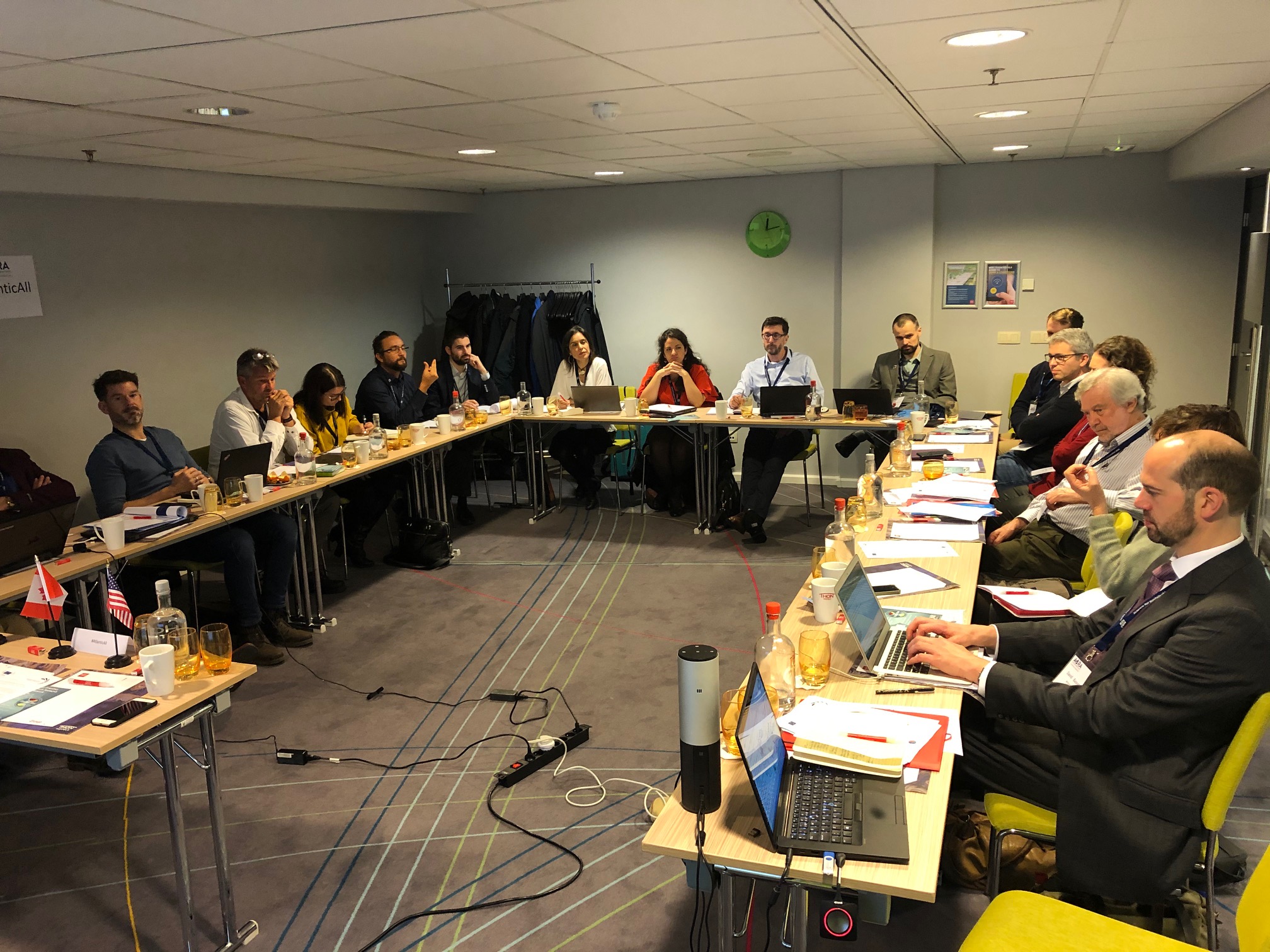


Save the date for the EATiP Annual General Meeting: 17-18 June, Brussels
/0 Comments/in _, EU, Events /by Catherine PonsThe Green Deal and Farm to Fork strategies set the agenda for the priorities in Horizon Europe. EATiP has delivered its position paper and recommendations, and has been consulted by different Commission bodies to represent the opinion of the aquaculture sector. Join us at the EATiP AGM to strengthen our consolidation role and to provide a common voice into the new framework programme.
Venue: to be confirmed
Low Trophic Aquaculture Value Chain Report
/0 Comments/in _, AQUA2019, AQUAEXCEL2020, European Commission, Workshop /by Catherine Pons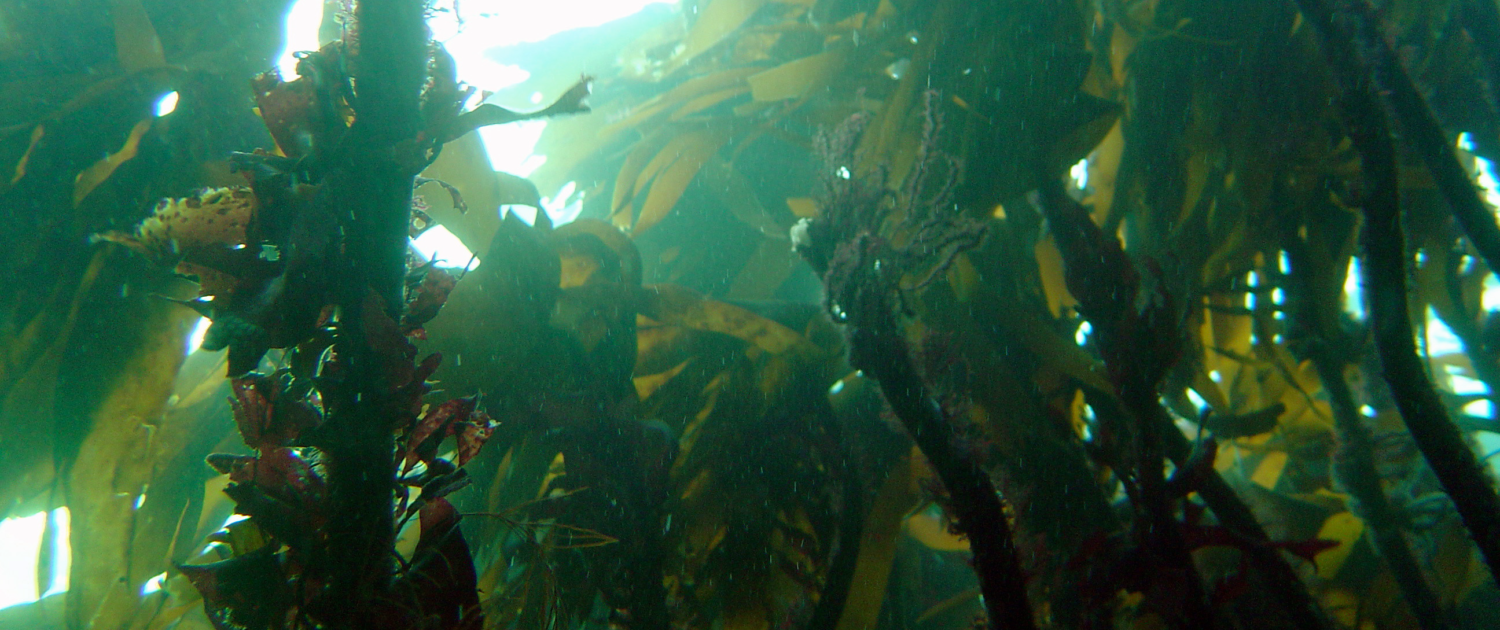
Photo credit: Wald Fredriksen
Under the slogan “Our Future – Growing from water”, the Aquaculture Europe 2019 conference addressed innovative ways to support the aquaculture economy. This year, the European Commission DG RTD unit “Healthy Oceans & Seas” and the EATiP co-organised a full day programme called “Low impact – High output”. It addressed future opportunities of new value chains in aquaculture, specifically targeting low trophic species.
Through three consecutive sessions, major outcomes of European technology and innovation efforts contributing to ensuring food and nutrition security were presented, followed by industry-driven panel discussions where the audience had the chance to participate. The sessions provided a dissemination arena and high visibility of EU support to the sector. They also generated ideas for future research by linking Horizon 2020 project findings to opportunities for industrial applications and uptake. The AQUAEXCEL2020 session aimed to create a forum for engagement and exchange between researchers and potential industry beneficiaries, focusing on presenting innovative solutions generated by the project with potential high impact on the aquaculture industry.
Read the full report from the EU-EATiP Day here:
EU EATiP Day presentations (Aquaculture Europe ’19)
/0 Comments/in _, AQUA2019 /by Catherine Pons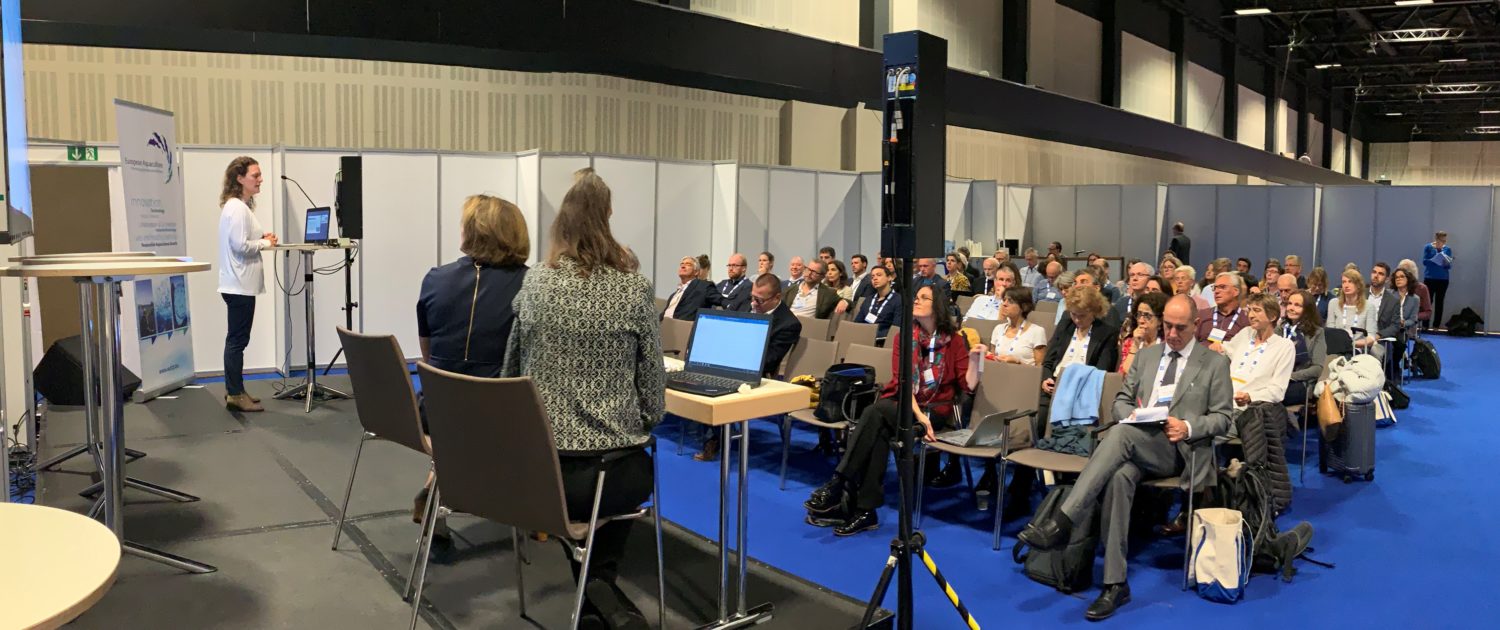
As a response to the call for food and feed security, parallel to the needed climate, circularity, spatial planning and biodiversity actions, attention at this year’s EU EATiP day was given to low-trophic aquaculture. With its potential to create a high output while minimizing its impact, new value chains in aquaculture based on shellfish, algae or other low-trophic organisms offer a high potential for Europe.
Representatives from DG RTD and DG MARE pointed at the importance of these timely discussions, against the background of the Horizon Europe framework programme and of the revision of the Strategic Guidelines for Sustainable Development of EU Aquaculture. At the same time, EATiP launched its Position Paper and Recommendations for research and innovation in the sector. The latest results from a number of EU funded projects were combined with considerations from feed suppliers, seafood producers, market analysts and NGO’s. Together with reflections from the panel and from the audience in the room, these provide important input when planning for future collaborative efforts. A final report will be published soon.
Please find below the presentations from the session speakers.
Do you wish to contribute? Please send us a message at secretariat@eatip.eu
EATiP Day Agenda:
EATiP Day Presentations
SESSION 1: Setting the scene – How can European research and innovation stimulate sustainability and competitiveness of the aquaculture sector?
- Alexandra Neyts, EATiP. WELCOME AND INTRODUCTION TO THE SESSION
- Marta Iglesias / Miguel Lizaso, European Commission DG RTD. R&I FOR AQUACULTURE: SCIENCE FOR THE NEW CHALLENGES.
- Lorella de la Cruz, European Commission DG MARE. WORKING TOWARDS A REVIEWED STRATEGY FOR EU AQUACULTURE: PLACING AQUACULTURE IN THE CONTEXT OF BROAD POLICY CHALLENGES
- Raphaëla Le Gouvello, International Union for Conservation of Nature (IUCN). LOOKING AT SYNERGIES BETWEEN AQUACULTURE AND CONSERVATION
- Yolanda Molares, ACUIPLUS/EATiP. SECTOR RECOMMENDATIONS FOR GROWTH, SUSTAINABILITY AND INNOVATION – A MULTI-STAKEHOLDER PERSPECTIVE.
- Kjell Inge Reitan, NTNU, and Jorunn Skjermo, SINTEF. MICRO- AND MACROALGAE SESSION CHAIRS REFLECTING ON HIGH-IMPACT OUTCOMES
SESSION 2 – Low trophic production technologies and new feed resources
- Ole Christensen, Biomar. CURRENT EXPERIENCES, FUTURE BOTTLENECKS AND OPPORTUNITIES OF NEW FEED INGREDIENTS FROM LOW-TROPHIC RESOURCES
- Ragnar Nystøyl, Kontali Analyse / EUMOFA. MARKETS FOR LOW TROPHIC AQUACULTURE PRODUCTS – SOME CRITICAL MARKET CONSIDERATIONS
- Jose M. Pinilla, NATAC BIOTECH SL. AQUOLIVE – IMPROVING AQUACULTURE PRODUCTION WITH BIOACTIVES FROM OLIVE OIL PROCESSING BY-PRODUCTS.
- Maria BARBOSA, Wageningen University & Research. MAGNIFICENT- RELIABLE MICROALGAE PRODUCTS SERVING MARKET DEMANDS FOR A SUSTAINABLE FUTURE
- Philip James, Nofima. AQUAVITAE – NEW SPECIES, PROCESSES AND PRODUCTS CONTRIBUTING TO INCREASED PRODUCTION AND IMPROVED SUSTAINABILITY IN EMERGING LOW TROPHIC, AND EXISTING LOW AND HIGH TROPHIC AQUACULTURE VALUE CHAINS IN THE ATLANTIC.
- PhD Urd Grandorf Bak, R&D Ocean Forest MACRO CASCADE A production platform processing cultivated seaweed into a range of value-added product
SESSION 3 – Efficient management systems to optimize sustainability and competitiveness.
- Lorenzo Gennari, EMPA. SHELLFISH INDUSTRY – A LOW TROPHIC AQUACULTURE TO BE BOOSTED: OPPORTUNITIES AND CONSTRAINTS
- Ana Granados, FABRE. INTRODUCING NEW BREEDING AND GENETIC TOOLS TO OPTIMIZE THE COMPETITIVENESS OF LOW-TROPHIC SPECIES
- Dr. Anette Wilson, AquaTT (on behalf of António Marques, Instituto Portugues do Mar e da Atmosfera). SEAFOODTOMORROW – NUTRITIOUS, SAFE AND SUSTAINABLE SEAFOOD FOR CONSUMERS OF TOMORROW
- Roberto Pastres, Universita Ca’ Foscari Venezia. GAIN – GREEN AQUACULTURE INTENSIFICATION IN EUROPE.
- Isabelle Arzul, IFREMER. VIVALDI – PREVENTING AND MITIGATING FARMED BIVALVE DISEASES
EATiP interaction with the European Inland Fisheries and Aquaculture Advisory Commission (EIFAAC)
/0 Comments/in _, Events /by Catherine Pons
EATiP was invited to the 30th EIFAAC session as observer and was represented by Mr. Laszlo Varadi (HUNATiP) who introduced the function and relevant activities of EATiP to the delegates.
A mission to promote improvement of inland fisheries and aquaculture
EIFAAC is part of the Food and Agriculture Organisation of the United Nations (FAO), and has a mission to promote long-term sustainable development, utilization, conservation, restoration and responsible management of European inland fisheries and aquaculture.
The organization has 34 members, both EU and non-EU European countries, including the European Commission.
Main goals
One of EIFAAC’s main goals from 2020 till 2021 is to be a leading Pan-European Organisation providing policy advice in inland fisheries and aquaculture, consistent with the objectives and principles of the FAO and other relevant international instruments.
Their second goal is to deliver technical and managerial advice, information and coordination on matters related to inland fisheries and aquaculture to its members and serves as an international network of organisation, stakeholders, communities and intergovernmental organisations.
EIFAAC’s third goal is to implements efficient delivery of its organisations and Members’ objectives in accordance with FAO principles and best international practices, via EFAAC’s structures, processes and procedures.
Aims to strengthen collaboration with EIFAAC
EATiP encourages the initiative from EIFAAC to improve mutual interactions on the definition of specific topics of common concern and potential collaboration on a regional level.
The Mirror Platform HUNATiP will proceed with strengthening this collaboration.
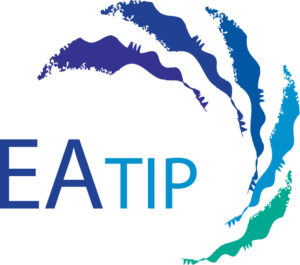
Focus of EU EATiP Day at AE19: Promoting food security and new value chains in aquaculture
/0 Comments/in _, AQUA2019 /by Catherine Pons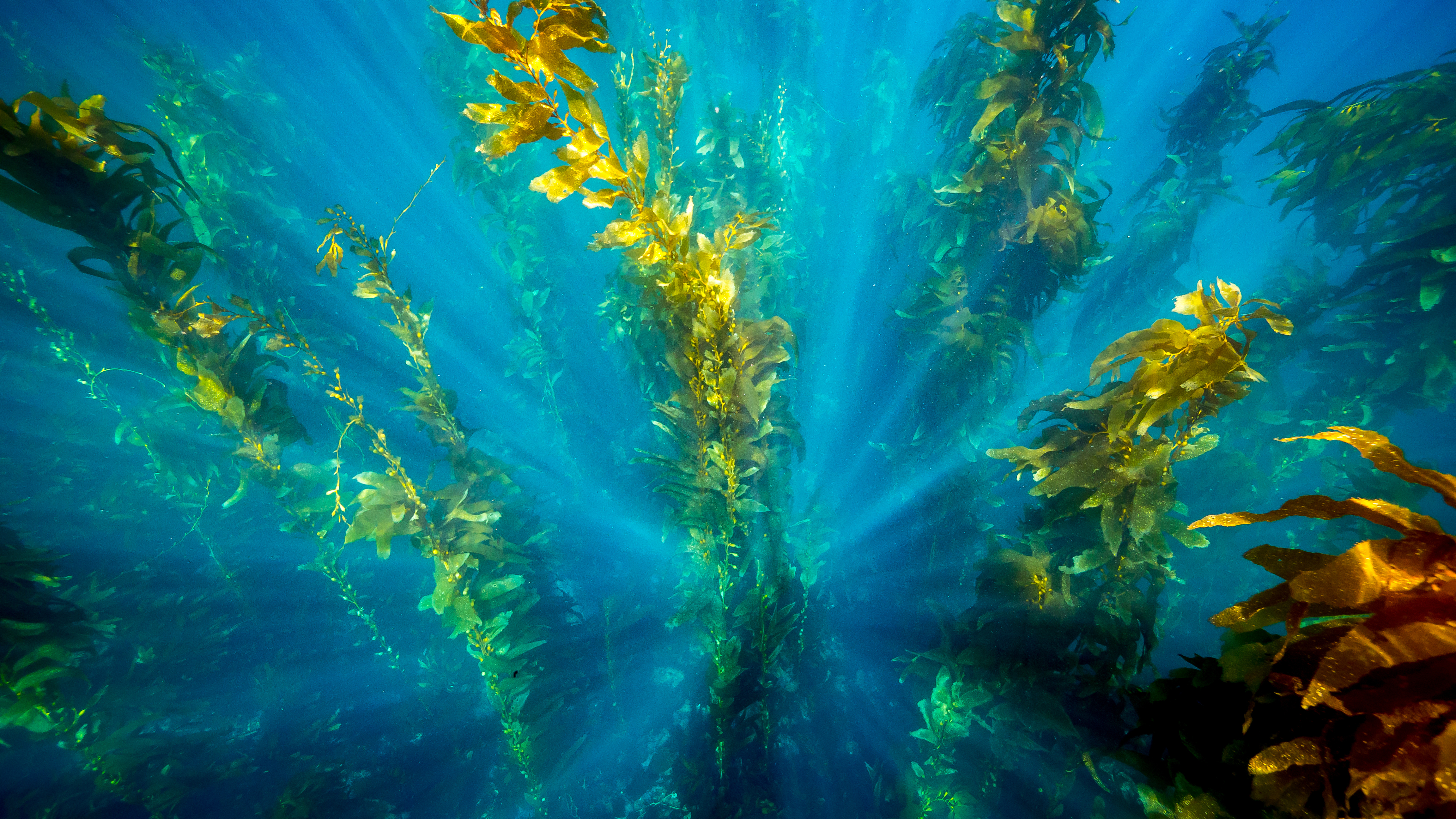
This year’s Aquaculture Europe 19′ event will be held in Berlin, Germany, 7-10 October 2019. ‘Our Future: Growing from Water’ is the theme of the annual event, which will be held in Berlin, Germany this year 7-10 October 2019.
For more information about the AE2019 event, please visit this link.
On the EU EATiP Day, the focus will be on aquaculture with a low impact and high output – a sector that can promote food security and develop new value chains. The session on October 9 will gather existing expertise in this field and discuss the critical knowledge gaps that remain to be filled.
Speakers from DG RTD will set the need for aquaculture research and innovation in a Horizon Europe perspective, whereas DG MARE will introduce the process for reviewing the current aquaculture strategic guidelines.
Growing need for aquatic products – EU funded projects will pitch results
The potential of low-trophic species as human food and aquaculture feed will be reflected upon by feed companies, aquaculture producers, service suppliers and market analysts.
EU funded projects AQUAVITAE, AQUAOLIVE, MACRO CASCADE, SEAFOODtomorrow, GAIN and VIVALDI will pitch their latest results and how they can serve a growing need for new aquatic products.
Important questions to be answered
What measures need to be taken to support a competitive aquaculture with a low carbon footprint? Which technologies are considered to be essential? How to select new appropriate species? And how far can/should we go to feed carnivorous fish with plant material? Answers to this and more will be provided by project leaders and industry representatives during two consequent panel debates.
The EC and EATiP wish to use this feedback to stimulate future collaborative actions, and hence support the ambition of European aquaculture to contribute to the global Zero Hunger vision.
Join us in Berlin for the EU EATiP Day, and visit our Booth #149!
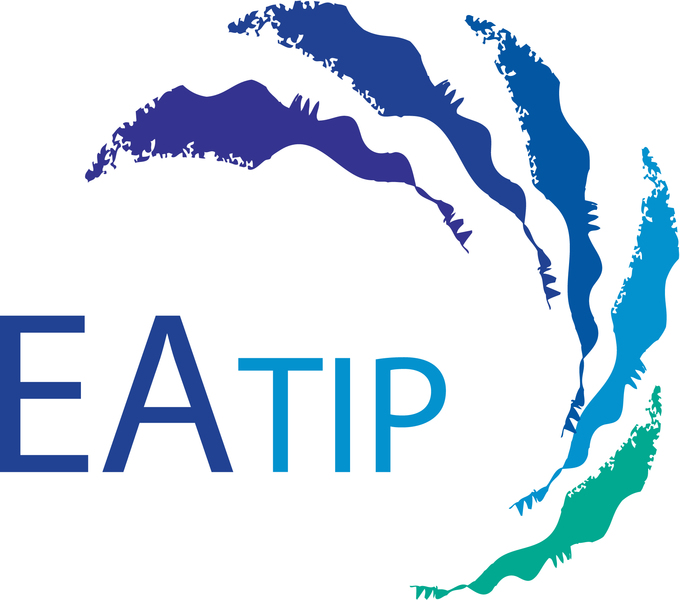
EU-EATiP Day at Aquaculture Europe ‘19 – “Low impact – high output”
/0 Comments/in AQUA2019 /by Catherine Pons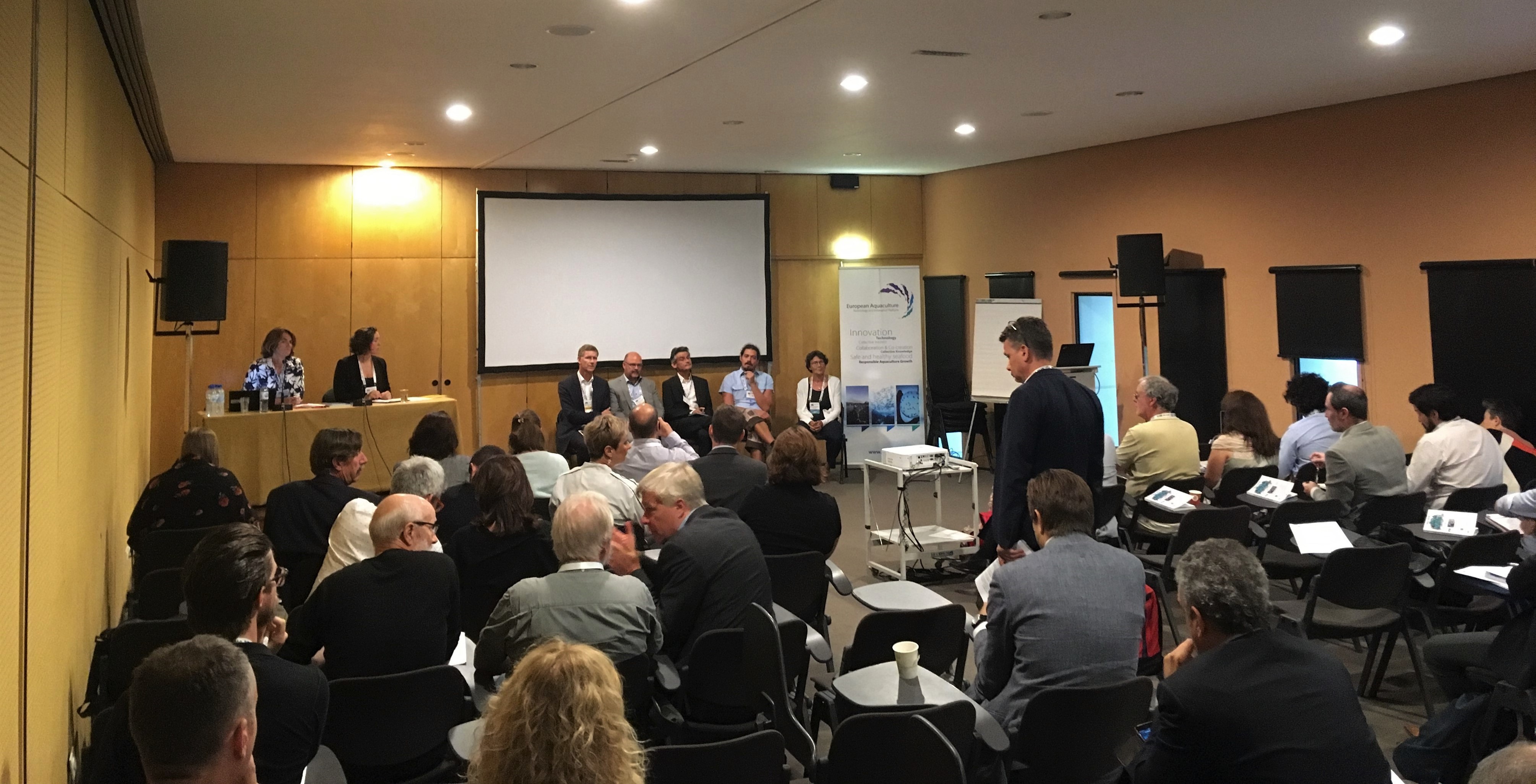
Promoting food security and new value chains in aquaculture
The cultivation of aquatic products at lower levels in the food chain present a high potential both in providing healthy food for all and in the combat against climate change. What are the most promising technologies and pathways to capitalize their output? Can current innovations be the game-changers of tomorrow? What are the critical knowledge gaps to reach a competitive aquaculture production of low-trophic species?
Session content
Several EU-funded projects have investigated production routes, technologies and management systems for the cultivation of new food, feed or other high value compounds of aquatic origin. The search for alternative feed ingredients for use in traditional aquaculture have also subject of several international studies.
Together with the DG-RTD Healthy Oceans & Seas Unit of the European Commission, EATiP invites project investigators and industry representatives to present major achievements and views on how to stimulate growth in this part of the sector. Pitching industry considerations and results from EU funded projects will be combined with panel discussions that aim to put forward some critical recommendations for future R&I.
Join the debate and engage in the future development of low-impact / high-output aquaculture!
AQUAEXCEL2020
The latest AQUAEXCEL2020 outputs will be presented and discussed at an interactive brokerage session, creating a forum for engagement and exchange between aquaculture researchers and potential industry beneficiaries of these innovative aquaculture outcomes.
Join us!
Meet up on October 9 (10:30-17:30) in the Berlin Convention Centre, Room: Exhibition 2. This is an open session (no conference badge is needed).
EATiP will be an exhibitor at the Aquaculture Europe trade show. Come and meet us at Booth #149!
Are you a EATiP member? Contact us at secretariat@eatip.eu for conference discount or free trade show pass.

